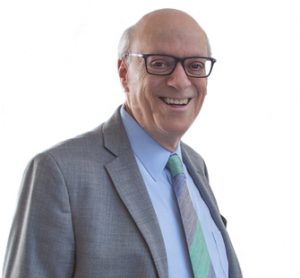Many people are captives of their environment in that they grow up surrounded by people similar to their parents. This means that they see and possibly interact with people in the same economic, educational, cultural and political proclivities as their parents.
To grow beyond that, they need role models who can show them the possibilities of breaking the barrier created by their birth. That could come from many directions, one of which is from someone they interact with, either directly or peripherally.
When Greatness Lives Next Door
I want to illustrate this with two stories. The first is about Benjamin Franklin. He was one of 17 children of his father, who was a candlemaker. He only spent a year and a half in school when he was about 8 years old, with some minor private tutoring that ended when he was 10. Franklin wrote in his autobiography that influential people would occasionally come to his house either for supper or afterwards to discuss matters of the day. With each occurrence, his barriers started to crack. Further, one of the most influential town people was Cotton Mather, who wrote a book on deportment that a young Franklin read. Later on in 1724, Franklin, at age 18, met Mather when he returned to Boston to visit his father and to make amends with his brother, whose apprenticeship he had run away from. Mather was an illustrious and influential church and civic leader with a well-known past somewhat peripherally involved in the Salem Witch Trials. He was also the author of many books, a scientist and a historian and was unusually open-minded in civic affairs even though he was a strict Puritan minister. A young Ben Franklin growing up hearing about this man, reading his book and then meeting him made him keenly aware of what Mather accomplished and showed Franklin what someone from “his neighborhood” could accomplish. This further removed barriers Franklin was born with and expanded his horizons and dreams of what was possible to aspire to.
Whispers of Influence
The second story is that I had such an “awakening” when I was a college student. One of my professors, John J. W. Neuner, also taught my father 25 years earlier, so he was sort of “special” to me. He was also the author of the Cost Accounting and Internal Control textbooks. One day, he happened to mention that he also wrote a book on penmanship and 20 books in total on various topics. This was an aha moment to hear that while he was a professor, he did things outside his area of accounting.
This had nothing to do with me writing books, which I never imagined I would do, but it showed me that even though someone is a noted expert in a given area, their reach could be extended into other areas that are not necessarily related to what they primarily do. That idle remark by him expanded my barriers.
Warren Buffett often refers to the boundaries people are born with as the “Ovarian Lottery.”
Mentors That Move Mountains
I could further identify barrier breakers for a lot of well-known people. George Washington had his older half-brother Lawrence Washington and his military service; Warren Buffett had his stock broker, congressman father’s experiences; Albert Einstein had a friend of his parents, Max Talmud break some boundaries for him; Michelangelo had Domenico Ghirlandaio who he apprenticed for as a mentor and barrier breaker; and Abraham Lincoln had a role model in Henry Clay who was a contemporary who he never met but read about extensively in the news.
Each of these people was extraordinary and brilliant. They were also voracious readers and a lot of what they read, along with their inquisitive nature and imagination, helped them reach great heights. However, they knew of high-achieving people as role models who expanded their horizons and broke the barriers created at their birth. They might have been as well accomplished as they became without any help, but there can be no doubt that the people who were their barrier breakers helped them, albeit stealthily, with their accomplishments.
There are many other traits and influences that help people succeed, but I suggest that people who become barrier breakers play a significant role in helping that success. If you are at the start of your career, seek out barrier breakers. If you are near the end of your career, seek out younger people you could assist. If you are in between, figure it out.
Think about this, and if you want to contribute to this discussion, contact me with your thoughts or post them on LinkedIn.
Contact Me
If you have any tax, business, financial or leadership or management issues you want to discuss please do not hesitate to contact me.



